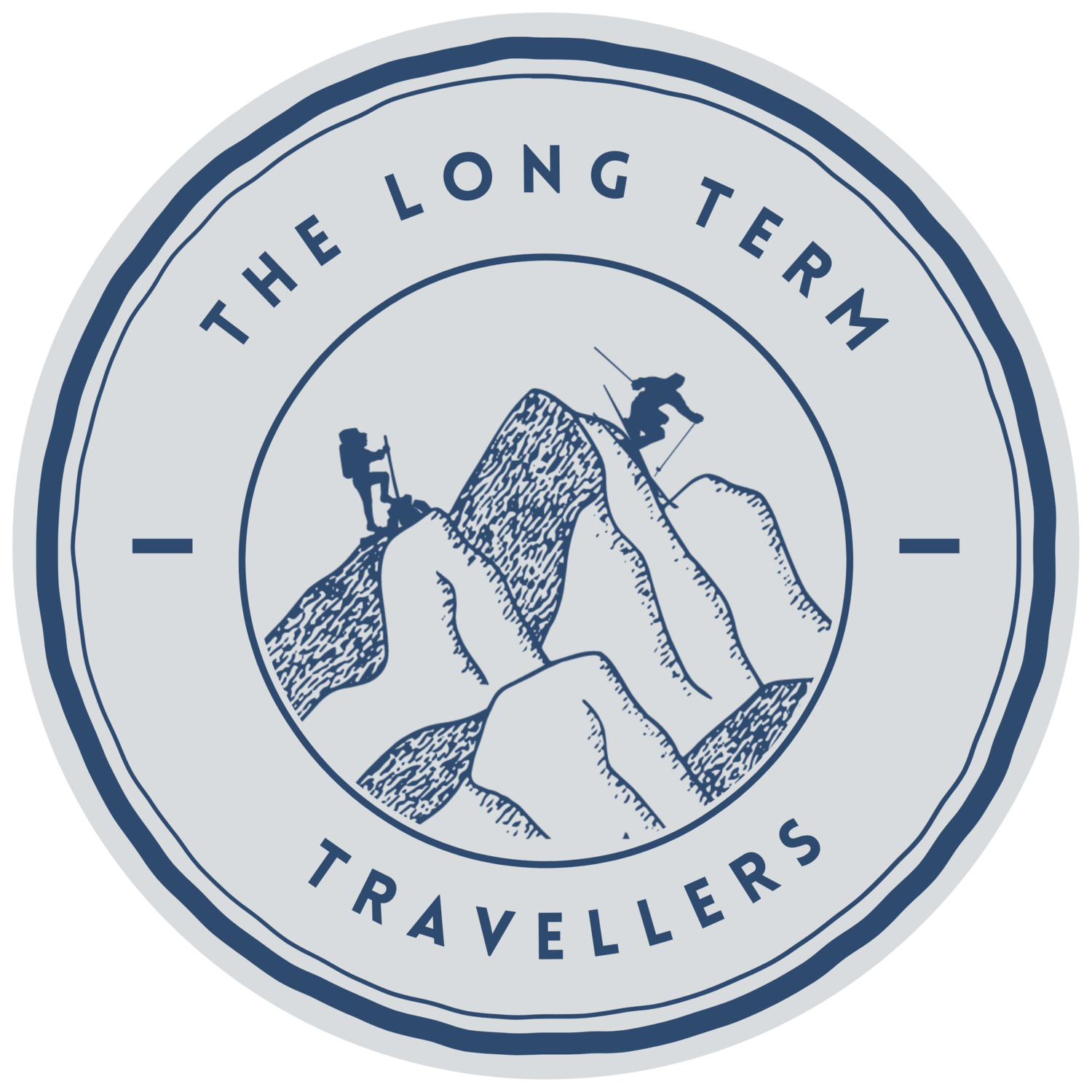A Beginner's Guide to the Working Holiday Visa
If you’ve ever overheard working travellers, seasonal workers or nomads under the 30/35 age range discussing which visas they have yet to claim, they’re usually referring to the numerous Working Holiday Visas (WHV) that are available to apply for around the world.
Sometimes referred to as international experiences or working holiday schemes, the working holiday is a visa which allows young people to temporarily work, live and travel in a new country, regardless of what they choose to do for a job or where they’d like to be based. It’s a fantastic way to experience living abroad while making an income and offers a lot of flexibility with how you choose to spend your time.
This generalised guide will give you a brief overview of what a WHV is, how to start your application, and what you can do for work.
We loved our working holiday in New Zealand- it allowed us to work on the ski slopes for part of the year, one of our favourite industries to work and travel with. Learn more about working ski seasons here.
What’s in this post:
What is a working holiday visa?
How to apply
What you can do for work
First, what is a working holiday visa?
The working holiday visa allows young people to live and work around the world, offering unique opportunities for paid travel, long term travel and voluntourism. The applicant’s country of residence, along with any other countries where the applicant holds citizenship, will dictate where they are eligible to apply for a WHV. Not every country has a scheme for a working holiday, and each country that does hosts a working holiday scheme will vary in its eligibility criteria, the length of time it grants the applicant, and conditions within the visa.
Working holiday visas are typically available for people between the ages of 18-30, although some countries allow applicants as young as 17 to apply, and others have extended their age range to 35. The length of time of a WHV can range from as short as 3-6 months but is typically around 1 year, with some countries offering 2 year visas, or the ability to extend the visa once living and working within the country.
The conditions within a visa will also vary depending on the country. Some will have loose parameters around the work/ travel balance, with countries like Australia asking WHV holders not to work for the same company for over 6 months, and countries like Japan asking WHV holders to only work for half the time they are in the country. With these in mind, WHV can be great for travellers looking for a good balance of work and time off to explore their new surroundings.
The Australian Working Holiday is renowned for being able to be extended if the applicant partakes in 88 days of regional work, categorised as regional by certain postcodes. Steve and I were able to be eligible for our second year by spending a few months working in the Outback, which was an incredible and unique experience.
Over the age range?
If you find yourself over the age range, or otherwise ineligible for the country that you’re hoping to travel to, know that there are many other visas that are available for working travellers or those of you who just want to live abroad, including sponsored, business, family, student, or other generalised work permits that you may be eligible for instead.
Our advice here is to choose the country that you have in your sights and contact the country’s local embassy nearest to where you stay for more information. We’ll be putting out a more generalised post of what visas there are out there so you can know more of what to expect, so watch this space.
How to Apply
As is with many other visa applications, the WHV application and process will greatly depend on which country you reside in, and where you’re looking to go. We’ll provide specialised advice on those we’ve had first hand experience gaining (for instance, see how to get your Canadian IEC here), but the advice in this post will be more generalised to point you in the right direction of which country you’re looking to go to.
If you have a country already in your sights, look into the local embassy for more information, whether that be through their official site, through emailing a representative, or by visiting the embassy in person after scheduling a meeting. Another way to go about finding more information on what will be required for your application is to head to the Government site of the country you’re hoping to go and look out for their immigration services page. Usually, look out for either working holiday schemes, programs, or visas, youth exchanges, or international experiences.
It’s worth reminding that the process greatly depends on where you’re from and where you’re going. As a Canadian, my Australian and New Zealand WHV (both of which I automatically eligible for being a Canadian citizen) took a matter of days to come back after filling in a straightforward online form, paying a relatively low cost, and promising that I would carry on me documents such as proof of funds (for AU, it was something like a few thousand CAD to prove that you can get a flight home/ subsist during the transition). However, there are a few WHV applications that require jumping through more hoops. The Canadian IEC and Japanese WHV, for instance, require a lot of paperwork and take a bit more time to process.
Living and working abroad gives you the unique ability to see other places slowly, meaning you still get the sense of normality and routine that comes with going to work and making a living, but you also get evenings, weekends and time off to explore a completely new part of the world. In this way, you really get to immerse yourself in a new place and become apart of it. The photo above, within New Zealand’s Fiordland, was just one of the places we were able to call ‘home’ over the years.
What you can do for work
As we mentioned above, the great thing about the WHV is that it’s not reliant on your workplace, meaning you can go into whichever job or industry you’d like. Whether or not you choose to continue on your current career path and get a job within your skillset, or whether you choose to do something entirely different is up to you.
Although agriculture, hospitality, tourism, retail and seasonal work are popular with young travellers on the WHV, and these industries certain accommodate this, it’s not the rule. There are plenty of other working opportunities within your current field or using your background. The WHV can be a great stepping stone if you’re looking to live abroad and want to get in the door of an organisation overseas - just be aware of your visa conditions and look for other opportunities to extend through sponsorship.
Remember that not all working travellers have to go into hospitality and tourism. Although these industries cater to working travellers, so do many others. We’ve had many opportunities for Steve to work within his background in maintenance, welding and engineering.
Keep in mind that any prospective employer won’t be able to take you on officially until your visa work has come through (giving you a right to work), so we recommend going through the visa process first. You can certainly alert your prospective employer that you’ve submitted your application, but for visas that take a longer time to process, you won’t know for certain when it will come through. Most WHV will grant you up to a year to ‘claim’ it, meaning that you will have time after a visa has been granted (in most cases) to apply for work.
Watch this space if you’re keen to know more about finding jobs abroad and where to start; the process has been made a lot more straightforward with the accessibility of the internet and most companies having some kind of online presence.
All things Long Term Travel
Apart of our namesake series, which explores all of the ins and outs of long term travel, we’re hoping to help others understand all of the elements of living and working abroad whether you’re in it already, want to travel more, or are simply curious about it.
Have any questions or topics on long term travel that you want us to cover? Send us a message on our social accounts or email us at hello@thelongtermtravellers.com
We’re huge fans of the working holiday as it’s allowed us the ease to live, work and travel within other countries as young adults, and we consider that kind of life experience absolutely invaluable.
Happy Travels,
Sam + Steve
More on Working Travel….










Promising incredible experiences across diverse landscapes, New Zealand is one of the best places in the world for the outdoor adventure traveller. If you’re hoping to live, work and travel longer term in NZ, the working holiday is a fantastic option if you’re eligible as it’s easy to apply for and offering a lot to flexibility. Our how-to goes over eligibility and how to apply.